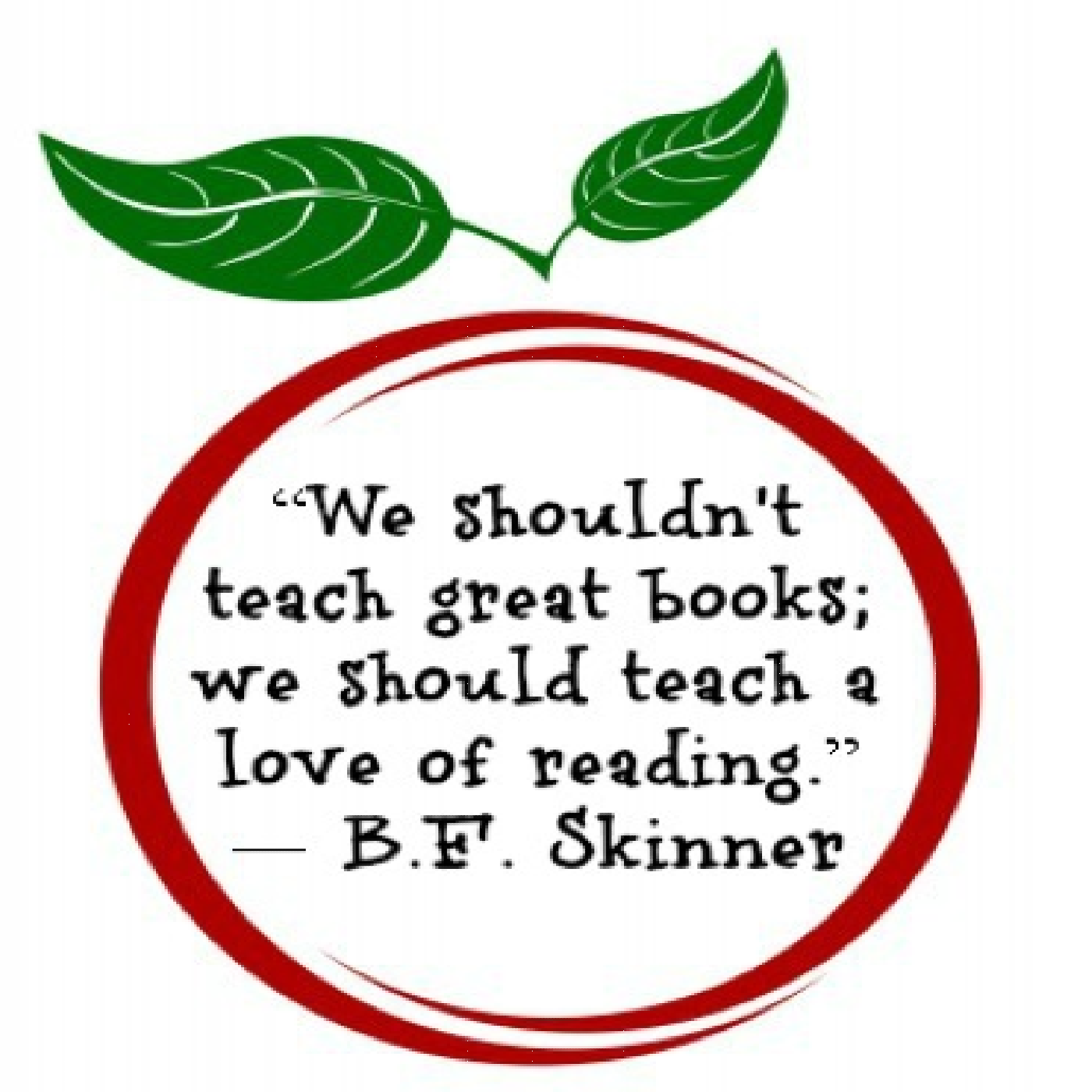
29.6K
Downloads
338
Episodes
The Chills at Will Podcast is a celebration of the visceral beauty of literature. This beauty will be examined through close reads of phrases and lines and passages from fiction and nonfiction that thrills the reader, so much so that he wants to read again and again to replicate that thrill. Each episode will focus on a different theme, such as "The Power of Flashback," "Understatement," "Cats in the Cradle," and "Chills at Will: Origin Story."
Episodes

Wednesday Aug 24, 2022
Wednesday Aug 24, 2022
Episode 139 Notes and Links to Felicia Taylor’s Work
On Episode 139 of The Chills at Will Podcast, Pete welcomes Felicia Taylor, and the two discuss, among other topics, the ways in which memory and her childhood and her family histories have informed her work, her creative process, living a creative life as poet, playwright, actor, etc., and themes and thought processes manifested in her standout poetry collection.
Felicia Taylor E is a writer, poet, storyteller, performer and arts educator, along with being a "gently nudging" wife to her hubby and a fun "trying to stick to a schedule" mom for her son. She has been writing since elementary school and has kept a diary or a journal since the 5th grade. Southern Spiced: A Brown Girl's Tale is her first book.
Buy Southern Spiced: A Brown Girl's Tale
Felicia performs “Echoes in my Spirit”
At about 1:45, Felicia describes her childhood, mainly spent in Denton, Texas, and her relationship with language, reading, and “oral preservation of history”
At about 4:30, Felicia details some of her favorite books and writers growing up, including the great Maya Angelou and Langston Hughes
At about 6:25, Pete and Felicia meditate on the beauty and strength of Maya Angelou’s work, including her piece from Bill Clinton’s inauguration; thanks to Professor Winston for her contribution to Felicia’s reading!
At about 8:00, Felicia discusses the reading of varied genres that she read in college and beyond, including Stephen King (Pete shares a favorite piece of his from King) and Alice Walker
At about 11:30, the two discuss Langston Hughes’ impact on them
At about 12:45, Felicia discusses her creative history and impulses including her mindset in creating her short film and then elaborates on films’ advantages versus books’ advantages
At about 17:35, Felicia responds to Pete’s questions about “muses” and how she accentuates her creativity, especially the power of memory (19:05)
At about 19:50, Felicia answers Pete’s questions about what it is like to write about intimate relationships in her life
At about 22:00, Felicia expands upon some real-life and profound connections to particular poems in her collection, including to the staggeringly-upsetting case of Timothy Cole
At about 24:50, Pete and Felicia cite the four distinct parts of the novel and discuss the reasoning behind her many “dedications” in the book; she cites “Freedom Tree” as an especially powerful example of work “echoing in her head”
At about 26:40, Pete and Felicia ruminate on the importance of Sesame Street as they discuss the collection’s first poem
At about 27:45, Pete wonders about Felicia’s mindset in writing about racism and hate in conjunction with the beauty of innocence
At about 29:45, Pete highlights the carefree, breezy language that is childlike yet profound
At about 33:20, Felicia speaks to the disparate experiences expressed in back-to-back poems that involve her hair
At about 38:20, Felicia details the event and the feelings and fears associated with a childhood encounter with the KKK that compelled Felicia to write about it
At about 43:20, Pete and Felicia reflect on Part II and its highlighting of Soul Train and beautiful times with family
At about 46:20, Part III and its historical connections are highlighted, in addition to a “heart wrenching” quote from Timothy Cole
At about 49:10, the two explore “White Lies, Part I” and its focus on dementia and a reversal of roles
At about 51:35, Ideas of absurdist and dark humor are discussed in connection to “A Dignified Death, Please”
At about 54:10, Pete makes a Sopranos’ reference (evergreen statement??)
At about 54:45, Felicia reads “Red Lips”
At about 56:10, ---silence---as Pete makes a 112 reference
At about 56:40, Felicia outlines some contact info and provides contact/social media info
You can now subscribe to the podcast on Apple Podcasts, and leave me a five-star review. You can also ask for the podcast by name using Alexa, and find the pod on Stitcher, Spotify, and on Amazon Music. Follow me on IG, where I’m @chillsatwillpodcast, or on Twitter, where I’m @chillsatwillpo1. You can watch other episodes on YouTube-watch and subscribe to The Chills at Will Podcast Channel. Please subscribe to both my YouTube Channel and my podcast while you’re checking out this episode.
This is a passion project of mine, a DIY operation, and I’d love for your help in promoting what I’m convinced is a unique and spirited look at an often-ignored art form.
The intro song for The Chills at Will Podcast is “Wind Down” (Instrumental Version), and the other song played on this episode was “Hoops” (Instrumental)” by Matt Weidauer, and both songs are used through ArchesAudio.com.
Please tune in for Episode 140 with Oscar Hokeah, who is a regionalist Native American writer of literary fiction, interested in capturing intertribal, transnational, and multicultural aspects within two tribally specific communities: Tahlequah and Lawton, Oklahoma. In addition, author of the recent standout novel, Calling for a Blanket Dance.
The episode will air on August 30.
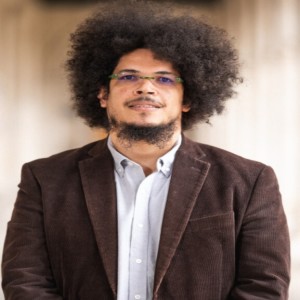
Friday Aug 19, 2022
Friday Aug 19, 2022
Episode 138 Notes and Links to Dr. Miguel Valerio’s Work
On Episode 138 of The Chills at Will Podcast, Pete welcomes Dr. Miguel Valerio, and the two discuss, among other topics, Miguel’s love of languages and his multilingualism, his early reading and reading that informed his career path, the process of writing for academia, and themes and salient issues revolving around the African diaspora and the great joys and festivities that came even in the midst of great hardship and dehumanizing treatment and racism.
Prof. Valerio is a scholar of the African diaspora in Latin America and the Iberian Peninsula. He teaches courses in Afro-colonial culture and contemporary Afro-Latin American literature and culture. His research has focused on black Catholic brotherhoods or confraternities and Afro-creole festive practices in colonial Latin America, especially Mexico and Brazil. His research has appeared in various academic journals, including Slavery and Abolition, Colonial Latin American Review, The Americas, and The Journal of Festive Studies. He is the author of Sovereign Joy: Afro-Mexican Kings and Queens, 1539-1640 (Cambridge University Press, 2022) and a co-editor of Indigenous and Black Confraternities in Colonial Latin America: Negotiating Status through Religious Practices (Amsterdam University Press, 2022).
Miguel Valerio's Faculty Website
Buy Sovereign Joy: Afro-Mexican Kings and Queens, 1539-1640
At about 2:10, Miguel talks about growing up in the Dominican Republic and his relationship with languages and the brain’s development when one is multilingual
At about 4:50, Miguel talks about Ruben Dario and how reading his work “ruined” Miguel
At about 7:00, Miguel responds to Pete’s question about his formal/school reading lists and how he was drawn to language, literature, and graduate studies
At about 9:15, Miguel discusses the progression of his learning of multiple languages and any confusion that may come up with being multilingual
At about 11:10, Miguel explains the ways in which Caribbean/Dominican Republic Spanish is and has been viewed with the world of academics and within the field of social linguistics
At about 13:50, the two outline ideas of formality and informality within the Spanish-speaking world
At about 15:20, Pete wonders about ideas of representation in what Miguel read growing up and the two discuss Marquez and fanboy over Marquez’s work
At about 18:30, Miguel details his path to academia/masters program
At about 20:35, Miguel gives background on his upcoming book
At about 22:15, Pete and Miguel explore connections to the powerful Preface of his book, a response to Imani Perry’s moving piece about joy from June 2020 in The Atlantic
At about 27:55, Chapter Two and ideas of colonial paranoia over African collectivism is discussed
At about 28:55, Pete cites a beautifully-written thesis of the book and the two discuss ideas of “exotic genre” and how Miguel filled in gaps in the historical record
At about 29:45, Miguel narrows down definitions of “festive” as used in the book
At about 33:30, Miguel gives historical background on groups from the African diaspora and their movement within México in colonial times
At about 38:25-39:57, Pete references his conversation with Vanessa Angelica Villarreal and this leads to discussion of the Vasconcelos’ quote that Mexicans are of a “raza cosmica.”
At about 40:00, Miguel responds to Pete’s questions about “creolization” and the caste system imposed in colonial México; Miguel mentions a great read-Before Mestizaje: The Frontiers of Race and Caste in Colonial Mexico
At about 45:20, Miguel discusses the cofradias and their works, as well as performances and their motives
At about 50:40, Pete asks Miguel if there were any figures who Miguel wishes he could have found more information on; Miguel cites Francisco Loya, Martin, Juan Bautista (two Juan Bautistas)
At about 53:00, Miguel outlines the process in writing a book for the academic world
You can now subscribe to the podcast on Apple Podcasts, and leave me a five-star review. You can also ask for the podcast by name using Alexa, and find the pod on Stitcher, Spotify, and on Amazon Music. Follow me on IG, where I’m @chillsatwillpodcast, or on Twitter, where I’m @chillsatwillpo1. You can watch other episodes on YouTube-watch and subscribe to The Chills at Will Podcast Channel. Please subscribe to both my YouTube Channel and my podcast while you’re checking out this episode.
This is a passion project of mine, a DIY operation, and I’d love for your help in promoting what I’m convinced is a unique and spirited look at an often-ignored art form.
The intro song for The Chills at Will Podcast is “Wind Down” (Instrumental Version), and the other song played on this episode was “Hoops” (Instrumental)” by Matt Weidauer, and both songs are used through ArchesAudio.com.
Please tune in for Episode 139 with Felicia E. Taylor. She is an impressive creative who is an Author/PoetActress/Comic/Mom "Southern Spiced: A Brown Girl's Tale" is her first book of Poetry.
The episode will air on August 23.
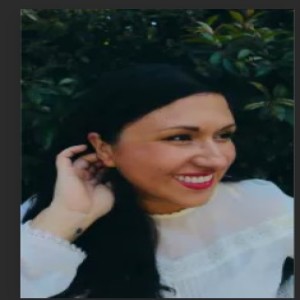
Tuesday Aug 16, 2022
Tuesday Aug 16, 2022
Episode 137 Notes and Links to Vanessa Angélica Villarreal ’s Work
On Episode 137 of The Chills at Will Podcast, Pete welcomes Vanessa Angélica Villarreal, and the two discuss, among other topics, Vanessa’s upbringing, her bond with her beloved grandmother, religion and indigenous traditions in her family and in her communities, punishing and overbearing institutions that oppressed her as a student, finding solace in books and poetry and bands, and ideas both historical and personal that inform her standout poetry collection.
Vanessa Angélica Villarreal was born in the Rio Grande Valley to Mexican immigrants. She is the author of the award-winning collection Beast Meridian (Noemi Press, Akrilica Series 2017), recipient of a 2019 Whiting Award, a Kate Tufts Discovery Award nomination, and winner of the John A. Robertson Award for Best First Book of Poetry from the Texas Institute of Letters. Her writing has appeared in The New York Times, Harpers Bazaar, Oxford American, POETRY, and elsewhere. She is a recipient of a 2021 National Endowment for the Arts Poetry Fellowship and a doctoral candidate at the University of Southern California in Los Angeles, where she is working on a poetry and nonfiction collection while raising her son. Her essay collection, CHUECA, is forthcoming from Tiny Reparations Books, an imprint of Penguin Random House, in 2023. Find her on Twitter @Vanessid.
Vanessa Angélica Villarreal's Website
Vanessa Angélica Villarreal's Wikipedia Page
Review of Beast Meridian for Pleiades Magazine
At about 2:35, Vanessa talks about beginning to read at a young age, and how her dad’s music compelled her to read liner notes and still informs her writing
At about 3:30, Vanessa talks about childhood bilingualism and some early writing based on the loss of her beloved grandmother
At about 4:40, Vanessa describes the resultant grief and rebellion after her grandmother’s death, as well as how her mistreatment in school led her to be part of a backwards educational/carceral experience
At about 7:35, Vanessa discusses grunge and other 90s music-”angsty” and “against the Man”-and how they led her on a path to poetry
At about 8:30, Vanessa describes Paul Celan as an inspiration for critiquing language in rebellious and “seek the haunted”
At about 9:35, Vanessa talks about how her poetry career took a pause as she began to work long hours at an early age
At about 11:20, Pete cites the famous quote about “art being a luxury” and Angelica adds that she considers it a birthright”
At about 12:30, Pete and Vanessa fanboy and girl about the previously-mentioned musicians, and Vanessa cites these creatives as “Romantics” and writers of beautiful and “strange” lyrics
At about 15:00, Vanessa responds to Pete’s questions about where her musical/lyrical sensibilities were born, and she expands on ideas of repetition and prayer derived from her father
At about 16:50, Vanessa speaks of “writing toward the body” in a lot of her work, “creating an understanding of the body”; she compares this writing to a chord change
At about 18:20, Vanessa highlights her father as “an intuitive composer” and his facility with sound and writing
At about 21:20, Vanessa discusses inspirational and formative writers in her writing journey, including Celan, Aase Berg, Harmony Holliday, Ronaldo Wilson & Duriel Harris & Dawn Lundy Martin (The Black Took Collective), and Jennifer Tamayo
At about 25:10, Vanessa discusses the implications and subtleties of nomenclature around Chicanx/Latinx/Mexican-American identities
At about 26:30, Pete asks Vanessa about the implications of the term pocha and Malinche and ideas of women as traitors is discussed
At about 30:15, Vanessa gives background on the famous quote by José Vasconselos
At about 33:10, The two begin discussing Beast Meridian; Pete compliments Vanessa’s original use of verbs
At about 34:40, Pete’s question about the poet as speaker leads Vanessa to discuss background for the poetry collection and the ways in which she approached the pages and with what questions in mind
At about 38:15, Vanessa discusses implications of her epigraphs, including ideas put forth by Frantz Fanon and Gloria Anzaldua’s ideas of Nepantla
At about 41:35, Vanessa cites Christopher Soto’s work discussing implications for Nepantla
At about 42:40, Pete references the collection’s first poem
At about 43:40, Vanessa reads the poem “Angélica: An Elegy” and describes the importance of the poem ending with a colon (:)
At about 45:40, The two discuss ideas of Malinche and her contemporary reimagining and Malinche’s connections to a poem in the collection
At about 47:00, Vanessa cites femicides in Tijuana and among indigenous women and “Irish Murder Ballads” as stimulus for her collection
At about 50:15, Vanessa and Pete discuss the myriad meanings of her connected “assimilation poems”: connections to Malinche, inversion, Spanglish, the use of footnotes, comparisons of “Girl” by Kincaid, strong metaphors, etc.
At about 53:20, Vanessa gives her definition of “assimilation” and speaks of ideas of identity/agency
At about 57:40, Pete points out beautiful and memorable lines from Vanessa’s work, especially regarding the ideas connected to “parallax”
At about 1:00:20, Vanessa remarks that “100% on her mind” was generational trauma and ideas of ancestral memory as she wrote the collection
At about 1:02:20, Pete wonders about the animals and mythology used in Part II and how they relate to real people in Vanessa’s life
At about 1:05:40, The two discuss the salient theme of loss in the collection, with a special emphasis on “Dissociative States”
You can now subscribe to the podcast on Apple Podcasts, and leave me a five-star review. You can also ask for the podcast by name using Alexa, and find the pod on Stitcher, Spotify, and on Amazon Music. Follow me on IG, where I’m @chillsatwillpodcast, or on Twitter, where I’m @chillsatwillpo1. You can watch other episodes on YouTube-watch and subscribe to The Chills at Will Podcast Channel. Please subscribe to both my YouTube Channel and my podcast while you’re checking out this episode.
This is a passion project of mine, a DIY operation, and I’d love for your help in promoting what I’m convinced is a unique and spirited look at an often-ignored art form.
The intro song for The Chills at Will Podcast is “Wind Down” (Instrumental Version), and the other song played on this episode was “Hoops” (Instrumental)” by Matt Weidauer, and both songs are used through ArchesAudio.com.
Please tune in for Episode 138 with Miguel Valerio. Prof. Valerio earned his PhD from The Ohio State University. His research and teaching focus on the African diaspora in the literature and culture of the Iberian world from the late medieval period to the present. His dissertation focused on black cultural agency vis-à-vis religious confraternities and public festivals in the early modern Iberian Atlantic, particularly colonial Mexico City and Bahia, Brazil. His work has appeared in Afro-Hispanic Review, Confraternitas, and the edited volume Afro-Catholic Festivals in the Americas. He is currently completing his first book, The Black Kings and Queens of Colonial Mexico City: Identity, Performance, and Power, 1539-1640.
The episode will air on August 19.
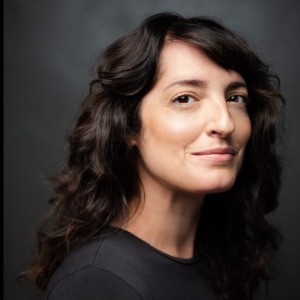
Tuesday Aug 09, 2022
Tuesday Aug 09, 2022
Episode 136 Notes and Links to Rachel Yoder’s Work
On Episode 136 of The Chills at Will Podcast, Pete welcomes Rachel Yoder, and the two discuss, among other topics, her Mennonite upbringing that was rich with books and libraries, her inspirations from her background and from college professors, and the myriad relatable and profound themes that populate her smash-hit Nightbitch, as Rachel shares the excitement that comes with the movie being adapted into a film. Rachel and Pete also discuss archetypes and double-standards and pressures both external and internal that come with motherhood and parenthood.
Rachel Yoder is the author of Nightbitch (Doubleday), her debut novel released in July 2021, which has also been optioned for film by Annapurna Pictures with Amy Adams set to star.
She is a graduate of the Iowa Nonfiction Writing Program and also holds an MFA in fiction from the University of Arizona. Her writing has been awarded with The Editors' Prize in Fiction by The Missouri Review and with notable distinctions in Best American Short Stories and Best American Nonrequired Reading. She is also a founding editor of draft: the journal of process.
Rachel grew up in a Mennonite community in the Appalachian foothills of eastern Ohio. She now lives in Iowa City with her husband and son.
Review of Nightbitch-“a feral debut” in The Guardian
Information from Variety about Upcoming Movie Version of Nighbitch
At about 1:50, Rachel talks about the exciting prospects for Nightbitch being made into a movie
At about 3:25, Rachel describes growing up in Ohio and her relationship with language and reading
At about 6:50, Rachel tells of the John Benton books she read as a child
At about 8:55, Rachel describes how writing was a “natural thing” and a hobby and how writing became essential during her time in Arizona
At about 11:00, Rachel cites Raymond Carver, Amy Hempel, Lorrie Moore, Hemingway, Pam Houston, and others as “formative writers” for her
At about 12:30, Rachel talks about short stories that changed the way she viewed the medium; she cites Amy Hempel’s “The Harvest”
At about 15:05, Rachel talks about contemporary writers who thrill and inspire her, include Miriam Toews, Ottessa Moshfegh
At about 16:55, Rachel gives background on her immediate post-college jobs and writing background
At about 18:05, Rachel responds to Pete’s question about how visual art and the idea of the muse work in with her writing process and writing material
At about 21:10, Rachel reads from the beginning of the book and discusses the genesis of the book’s title
At about 25:20, Pete and Rachel ruminate on the dog from the book as a literal thing
At about 26:30, Pete shares the book blurb from Carmen Maria Machado in citing comparisons to Kafka’s work; Rachel then discusses the balance between writing allegory and straightforward prose
At about 29:55, Pete contributes to a possible future blurb with another comparison of the book to another
At about 30:30, Rachel explains her thought process in not giving a name to the titular character
At about 31:45, Pete cites a famous quote in pointing out Rachel’s work and subject matter work so well as fiction
At about 32:20, Pete and Rachel discuss themes of the singular focus of motherhood and “before and after motherhood”
At about 36:55, Pete and Rachel highlight ideas of ambition and regret and burdens carried by women intergenerationally with regard to moving scenes from the book
At about 40:20, Pete wonders about ideas of blame and culpability for oppression targeting women, and Rachel analyzes Nightbitch’s background and how it informed her later life
At about 43:35, Mommy groups (!) are discussed, along with the lasting image from the book
At about 44:50, The two discuss the role and importance of the “mystic, the iconoclast” who was Nightbitch’s grandmother
At about 45:50, Rachel discusses the stylistic choice of italicizing certain lines in her book
At about 47:20, The two talk about Wanda White and her Field Guide and their importance in the book
At about 50:00, Rachel explains background on the needs for community and their
At about 51:30, The two discuss themes of art and performance and their myriad meanings in conjunction with the book
At about 55:15, Pete compliments Rachel’s writing that serves as informational and affecting without becoming didactic; Pete reads a profound paragraph from page 237 that illustrates this
At about 1:10:00, Rachel outlines some future projects
At about 1:02:50, Rachel gives her social media info and recommends places to buy the book, including Prairie Lights Bookstore, where you can a signed copy
You can now subscribe to the podcast on Apple Podcasts, and leave me a five-star review. You can also ask for the podcast by name using Alexa, and find the pod on Stitcher, Spotify, and on Amazon Music. Follow me on IG, where I’m @chillsatwillpodcast, or on Twitter, where I’m @chillsatwillpo1. You can watch other episodes on YouTube-watch and subscribe to The Chills at Will Podcast Channel. Please subscribe to both my YouTube Channel and my podcast while you’re checking out this episode.
This is a passion project of mine, a DIY operation, and I’d love for your help in promoting what I’m convinced is a unique and spirited look at an often-ignored art form.
The intro song for The Chills at Will Podcast is “Wind Down” (Instrumental Version), and the other song played on this episode was “Hoops” (Instrumental)” by Matt Weidauer, and both songs are used through ArchesAudio.com.
Please tune in for Episode 137 with Jose Antonio Vargas, a Pulitzer Prize-winning journalist, Emmy-nominated filmmaker, and Tony-nominated producer. A leading voice for the human rights of immigrants, his best-selling memoir, Dear America: Notes of an Undocumented Citizen, was published by HarperCollins in 2018. His second book, White Is Not a Country, will be published by Knopf in 2023.
The episode will air on August 12.

Tuesday Jul 26, 2022
Tuesday Jul 26, 2022
Episode 135 Notes and Links to Briana Muñoz’s Work
On Episode 135 of The Chills at Will Podcast, Pete welcomes Briana Muñoz, and the two discuss, among other topics, her upbringing and relationship with bilingualism and poetry, an eminently memorable visit to hear Michele Serros read, Briana’s performance experience in dance and poetry, inspiring and challenging poets who have inspired her, the issues and themes that populate her work, and exciting and important future projects she is working on.
Briana Muñoz is a writer from Southern California. Raised in
San Diego, she spent a lot of her time at her mother’s Mexican
folklore dance classes and at ranches where her father trained horses
into the sunset. She is the author of Loose Lips, a poetry collection
published by Prickly Pear Publishing (2019). Her work has been
published in the Bravura Literary Journal, LA BLOGA, the oldest
Chicana Chicano Literature blog in history, the Poets Responding
page, and in the Oakland Arts Review, among others. In the 2016
publication of the Bravura, she was awarded the second-place fiction
prize. Her poem “Rebirth” was featured in the Reproductive Health
edition of the St. Sucia zine. Briana’s work was one of ten chosen
for The Best of LA BLOGA from 2015. When she isn't typing
away, she enjoys Danza Azteca, live music, cats, and thrift shopping.
Buy EVERYTHING IS RETURNED TO THE SOIL/ TODO VUELVE A LA TIERRA
“Briana Munoz: The TNB Self-Interview”
Briana performs her work at Voices of California, Part II (Briana’s segment starts around 41:10)
At about 2:50, Briana talks about her growing up- her experience with writing and language, her bilingualism, and her family’s performance background
At about 6:15, Briana speaks about early influences and who she was reading when she was a kid/adolescent, writers like Sandra Cisneros
At about 7:30, Briana gives background on a turning point in attending a live reading by Michele Serros
At about 10:00, Briana talks about early reading and former and current favorite readings and how she has endeavored to “decolonize your bookshelf”
At about 11:20, Briana responds to Pete’s question about how she reads now that she is a published and accomplished poet
At about 12:40, Briana shouts out the great work of Cesar De León
At about 14:30, Pete asks Briana about how much she and the speakers in her poems are synonymous
At about 16:10, Pete wonders about how music figures in for Briana’s creative process, and she continues to explain her family’s performance background
At about 18:30, Briana details her experience with and love for danza azteca, and how it influences other parts of her life, her poetry, and her mindset
At about 22:30, Briana discusses the background for the subject matter of her first collection, Loose Lips
At about 23:20, Briana details the “big motivation” that came from a poetry trip through Cuba
At about 24:10, Briana describes how writing has been a part of her life since 10 years old and how her creative writing professors were very “motivating” for her
At about 26:00, Briana cites Sonia Gutierrez as a motivating influence
At about 27:20, Briana explains her performance “stage fright,” or lack thereof
At about 28:20, Pete wonders, and Briana responds to his question, about readers “decoding poetry”
At about 29:30, Briana talks about “seeds” for her most recent collection, the title’s significance, and a blur by Odilia Galvan Rodríguez that Briana feels sums up her writing styles
At about 31:30 and 33:10, Pete and Briana explore the Epigraph for the collection and a few selected poems, especially its focus on Mother Earth as a collection throughline
At about 32:20, Briana speaks on the idea of poetry as “catharsis” and “torment” and various and slippery emotions
At about 34:15, The two discuss themes of ancestral wounds and legacies
At about 38:10, Briana ponders what it is like to write about family members, and the personal feelings involved
At about 40:30, The two discuss “My Poem is not a Persuasive Essay” and its standout images, phrases, and its craft
At about 43:10, Briana explains the audience for her poem “Gente”
At about 45:00, Briana talks about the poem “Resilient Girl” and salient themes
At about 46:30, Briana discusses the conscious and subconscious meanings of hands, a strong motif in the poems
At about 48:30, Pete highlights some stellar lines in her work as the two discuss themes of authenticity and sentimentality and nostalgia and trauma
At about 51:15, The theme of sensuality is discussed with lines from Briana’s work, and Pete asks her about her views on poetry as rational/emotional
At about 52:50, Pete cites the collection’s last poem as lines about transition are explored
At about 53:50, Briana reveals when she knew her collection was “done,” and helpful guidance from editor/publisher Edward Vidaurre
At about 55:30, Briana gives out her contact info: social media particularly, and talks about Mutual Aid Poetry Show and other future projects
At about 58:10, Briana reads “My Poem is not a Persuasive Essay”
At about, 1:01:00, Briana reads “Soft Girl”
At about, 1:01:50, Briana reads “Why I Refuse to Celebrate the Opening of the Sixth Street Bridge”
You can now subscribe to the podcast on Apple Podcasts, and leave me a five-star review. You can also ask for the podcast by name using Alexa, and find the pod on Stitcher, Spotify, and on Amazon Music. Follow me on IG, where I’m @chillsatwillpodcast, or on Twitter, where I’m @chillsatwillpo1. You can watch this and other episodes on YouTube-watch and subscribe to The Chills at Will Podcast Channel. Please subscribe to both my YouTube Channel and my podcast while you’re checking out this episode.
This is a passion project of mine, a DIY operation, and I’d love for your help in promoting what I’m convinced is a unique and spirited look at an often-ignored art form.
Please check my social media in the next month, as I’ll be sharing more details about my Patreon page, which will go live in September and will feature some cool swag like The Chills at Will Podcast t-shirts, refrigerator magnets, and more.
The intro song for The Chills at Will Podcast is “Wind Down” (Instrumental Version), and the other song played on this episode was “Hoops” (Instrumental)” by Matt Weidauer, and both songs are used through ArchesAudio.com.
Please tune in for Episode 136 with Jose Antonio Vargas, a Pulitzer Prize-winning journalist, Emmy-nominated filmmaker, and Tony-nominated producer. A leading voice for the human rights of immigrants, his best-selling memoir, Dear America: Notes of an Undocumented Citizen, was published by HarperCollins in 2018. His second book, White Is Not a Country, will be published by Knopf in 2023.
The episode will air on August 2.

Tuesday Jul 19, 2022
Tuesday Jul 19, 2022
Episode 134 Notes and Links to Kirstin Chen’s Work
On Episode 134 of The Chills at Will Podcast, Pete welcomes Kirstin Chen, and the two discuss, among other topics, her childhood in Singapore and adolescent move to The United States, her relationship with reading and writing, especially in terms of “pleasure reading,” her research and process in writing two different but successful books before her current Counterfeit, the book’s success and celebrating that success, her skill with point-of-view, and salient themes in the book and their connections to her life and society.
K I R S T I N C H E N is the New York Times best-selling author of three novels. Her latest, Counterfeit, out now from William Morrow/HarperCollins (US) and The Borough Press (UK), is the June ’22 Reese’s Book Club pick. Television rights have been optioned by Sony Pictures.
Born and raised in Singapore, she lives in San Francisco. She teaches creative writing at the University of San Francisco and in Ashland University’s Low-Residency MFA Program.
Buy Kristin's Book Counterfeit
At about 1:30-Pete and Kirstin shout out The University of San Francisco and the great Christian Kiefer and talk about their connections
At about 2:30, Kirstin describes the experiences that have come with her book being picked as June’s Reese’s Book Club Pick, as well as her perspective during this heady time
At about 5:20, Kirstin discusses her background, growing up in Singapore, her relationship with language and literature, her interest in accents
At about 7:35, Kirstin talks about Singapore’s connections to the West
At about 8:55, Kirstin gives background on inspiration for some of the characteristics of Winnie from Counterfeit
At about 10:30, Pete wonders about Kirstin’s reading tastes as an adolescent and she further explains the connection between the disparate emphases in her various schools
At about 14:45, Kirstin talks about ideas of “representation” and exposure to local writing when she was a kid, as well as changing modes in 2022
At about 16:10, Kirstin details those texts and writers who thrilled her as a college student, including Mary Gaitskill, Carver, and Mona Simpson’s “Lawns”
At about 18:05, Kirstin describes the process of going from loving reading and writing to writing professionally and shares a cool Tobias Wolff story
At about 22:00, Kirstin talks about her love of fashion and how her early job at Banana Republic led to experiences that have made it into her writing; she also cites her own individual embrace of the MFA
At about 24:00, Kirstin discusses her early experiences with publishing Soy Sauce for Beginners
At about 26:15-28:35, Kirstin gives background on her second novel, Bury What We Cannot Take, especially homing in on the extensive research done for it
At about 28:50, Kirstin details her writing/rewriting process for Counterfeit during Covid and its placement post-2016 election
At about 31:20-33:10, Kirstin details the seeds for Counterfeit and how an offhand joke grew into a book
At about 33:20, Pete and Kirstin discuss the successful ways in which she plays with POV, a conscious choice to eliminate some quotation marks for purposes of framing narration in certain ways
At about 36:30, Pete compliments the book as “off-kilter,” and discusses the book’s two parts
At about 37:40, Kirstin breaks down the dynamics between Winnie and Ava and how their immigrant status as Asian-Americans informs their interactions
At about 39:20, Pete and Kirstin discuss Ava’s family and a well-drawn and hilarious scene involving preschool “tryouts”
At about 42:40, Pete and Kirstin trace the ways in which the two women come together and where they are emotionally at the time
At about 44:00, The plot is discussed, with special attention to the scam that dominates the book and was based very closely on a true story
At about 47:00, Kirstin explains how Ava’s predicaments in the book are related to themes of “saving face”
At about 50:00, Kirstin and Pete discuss expectations that are sometimes put upon immigrants or the children of immigrants
At about 51:15, The two discuss Hasan Minhaj’s special, Homecoming King, and an unforgettable anecdote he tells from Sept 12, 2001
At about 52:10, Kirstin compares the Minhaj special and salient themes with ideas of the “model minority myth” as presented in Counterfeit
At about 54:00, The shift in empathetic figures is discussed
At about 54:45, Pete wonders about what the title means to Kirstin in the context of the book
At about 56:40, The ideas of hyperbole as expressing truths is brought up in context of the book’s plotline
At about 57:45, Kirstin talks about shifting ideas of “cheating” with income inequality and ideas of “rigged” society
At about 58:50, Ideas of ethical production are discussed, as Pete references a memorable scene involving clothing production in Gomorrah, and Kirstin discusses the subtleties of production that are often generalized
At about 1:02:10, Themes revolving around women’s agency are discussed
At about 1:04:55, Kirstin connects the “model minority” myth to Covid happenings that inspired some parts of the book
At about 1:05:45, Pete trumpets the book’s many strong points
At about 1:06:40, Kirstin outlines future projects, including her role with the screen adaptation of her book
At about 1:08:25, Kirstin shouts out The Booksmith as one place to buy her signed book
You can now subscribe to the podcast on Apple Podcasts, and leave me a five-star review. You can also ask for the podcast by name using Alexa, and find the pod on Stitcher, Spotify, and on Amazon Music. Follow me on IG, where I’m @chillsatwillpodcast, or on Twitter, where I’m @chillsatwillpo1. You can watch other episodes on YouTube-watch and subscribe to The Chills at Will Podcast Channel. Please subscribe to both my YouTube Channel and my podcast while you’re checking out this episode.
This is a passion project of mine, a DIY operation, and I’d love for your help in promoting what I’m convinced is a unique and spirited look at an often-ignored art form.
The intro song for The Chills at Will Podcast is “Wind Down” (Instrumental Version), and the other song played on this episode was “Hoops” (Instrumental)” by Matt Weidauer, and both songs are used through ArchesAudio.com.
Please tune in for Episode 135 with Jose Antonio Vargas, a Pulitzer Prize-winning journalist, Emmy-nominated filmmaker, and Tony-nominated producer. A leading voice for the human rights of immigrants, his best-selling memoir, Dear America: Notes of an Undocumented Citizen, was published by HarperCollins in 2018. His second book, White Is Not a Country, will be published by Knopf in 2023.
The episode will air on July 26.
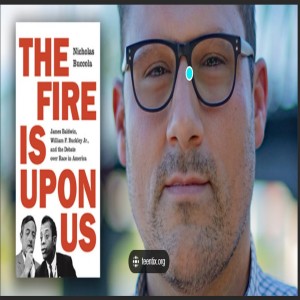
Friday Jul 15, 2022
Friday Jul 15, 2022
Episode 133 Notes and Links to Nick Buccola’s Work
On Episode 133 of The Chills at Will Podcast, Pete welcomes Nick Buccola, and the two discuss, among other topics, Nick’s early love of story and history, formative and inspiring assignments and teachers in his early education, the effects of the innovative and supportive and brilliant educators at Santa Clara University that nudged him towards his studies in political science and history, ideas of objectivity in writing, his book on Frederick Douglass, and his seminal work on the famous debate between William F. Buckley, Jr. and James Baldwin, with all of its attendant themes and connections to today’s world.
Nick Buccola is a writer, lecturer, and teacher who specializes in the area of American political thought. He is author of The Fire Is upon Us: James Baldwin, William F. Buckley Jr., and the Debate over Race in America, as well as a fellow Santa Clara University alum.
William F. Buckley and James Baldwin’s Legendary Debate
Buy The Fire Is Upon Us: James Baldwin, William F. Buckley Jr., and the Debate Over Race in America
The Atlantic Article-Review of Book: “The Famous Baldwin-Buckley Debate Still Matters Today”
Nick summarizes the book in a video for Linfield University
Nick speaks about the book with the Notre Dame Center for Citizenship & Constitutional Gov.
At about 1:40, Nick talks about his relationship with words and language and story
At about 4:40, Nick discusses key moments in his reading and literary life throughout school, including Ms. Kraut’s spirited reading aloud in class, and Ms. Crawford, the “politically pugnacious” junior high teacher
At about 7:15, Nick cites some transformational and inspirational teachers along his educational journey, particularly those who helped him foster a love of history and political science
At about 9:20, Nick shares a cool fact about his Ph. D. invitation list
At about 9:45, Nick gives background on his early writing as he worked toward graduate degrees and publication; he shouts out Santa Clara University Professor Terri Perretti’s encouragement
At about 13:15, The two discuss the impact of the Jesuits and their sense of inquiry; Nick cites a shared professor, Father Mark Ravizza, and his innovation and brilliance
At about 16:00, The two nerd out about the Decalog, a movie series explored through a class at SCU
At about 16:45, Nick and Pete agree on the power of class discussion
At about 18:00, Nick provides background for his writing on Frederick Douglass
At about 21:25, Pete asks Nick about “seeds” for his book on the famous debate between William F. Buckley and James Baldwin
At about 25:30, The two discuss the effects of Baldwin’s speeches on their respective students
At about 26:50, Nick discusses ideas of objectivity and subjectivity in his writing of the book
At about 32:25, Nick discusses a debating technique that Sharifa Rhodes-Pitts highlighted-”The Jimmy”
At about 33:40, Pete and Nick detail the book’s structure that serves to lead up to the debate itself, as well as the characterizations of Buckley and Baldwin that informed the scenes
At about 35:55, Nick dips a toe into the water in giving his experience with the book and lessons learned on craft
At about 39:30, The fathers/stepfathers of the two debaters are discussed as written about in the book and how these fathers affected their sons’ worldviews
At about 43:50, The two lay out Baldwin’s “cosmopolitan” lifestyle and formative years in his 20s and Buckley’s Yale experience and its effect on his writing and later ideas
At about 45:20, Nick speaks to the ideas expressed in Buckley’s writing about Yale and today’s ideas of “liberalization” on college campuses
At about 49:20, Nick sets out Baldwin’s views of debate and knowledge and questioning
At about 50:20, The two discuss Baldwin and Buckley’s actions in the 1950s, especially their publications, that help them crystallize some of their signature ideas and ideals
At about 52:50, Nick discusses Buckley’s attempts to distance himself from white supremacy in some ways while also espousing clearly racist views
At about 55:45, Nick compares ideas espoused by Buckley and comparisons to modern-day political coverage
At about 56:45, Nick puts Baldwin’s political outlook in perspective
At about 57:20, George Wallace and his connection to the book’s events is discussed
At about 1:01:00, Some generalities of the debate itself are discussed, with Baldwin’s strong start and debating style and subject matter particularly emphasized, including the book’s Epilogue
At about 1:03:40, Nick shares some concluding remarks about “coming to terms with history” as inspired by James Baldwin
At about 1:05:00, Nick shouts out bookstores like Powell’s and Bookshop to buy the book and gives contact information/social media information
At about 1:06:15, Pete highlights book endorsements by Whoopi Goldberg, The Atlantic (writer Gabrielle Bellot), and Ibram X. Kendi
You can now subscribe to the podcast on Apple Podcasts, and leave me a five-star review. You can also ask for the podcast by name using Alexa, and find the pod on Stitcher, Spotify, and on Amazon Music. Follow me on IG, where I’m @chillsatwillpodcast, or on Twitter, where I’m @chillsatwillpo1. You can watch other episodes on YouTube-watch and subscribe to The Chills at Will Podcast Channel. Please subscribe to both my YouTube Channel and my podcast while you’re checking out this episode.
This is a passion project of mine, a DIY operation, and I’d love for your help in promoting what I’m convinced is a unique and spirited look at an often-ignored art form.
The intro song for The Chills at Will Podcast is “Wind Down” (Instrumental Version), and the other song played on this episode was “Hoops” (Instrumental)” by Matt Weidauer, and both songs are used through ArchesAudio.com.
Please tune in for Episode 134 with Kirstin Chen, professor of creative writing at the University of San Francisco and in Ashland University’s Low-Residency MFA Program. She is The New York Times best-selling author of three novels, and her latest, Counterfeit, out now, is the June ’22 Reese’s Book Club pick
The episode will air on July 18.

Tuesday Jul 12, 2022
Tuesday Jul 12, 2022
Episode 132 Notes and Links to Morgan Talty’s Work
On Episode 132 of The Chills at Will Podcast, Pete welcomes Morgan Talty, and the two discuss, among other topics, the “surreal” feeling of seeing his publication play out with such critical acclaim, his early relationship with languages and storytelling, formative experiences and authors and texts that have informed his writing, themes and throughlines in his debut story collection, and the seeds and background of the story collection and his future projects.
Morgan Talty is a citizen of the Penobscot Indian Nation where he grew up. Morgan teaches courses in both English and Native American Studies, and he is on the faculty at the Stonecoast MFA in creative writing. His highly-anticipated short story collection, Night of the Living Rez, is forthcoming from Tin House Books, on July 5.
“The Gambler” for Narrative Magazine
At about 1:20, Morgan discusses his mindset as he was in the week before publication of his short story collection, as well as events coming up promoting the book and how it feels to see his book become a reality
At about 3:40, Morgan discusses his early relationships with reading, language, and storytelling
At about 5:45, Morgan explains his rationale for writing out Penobscot words phonetically and how the language lives within him
At about 8:00, Morgan responds to Pete’s questions about Wabanaki and their connection to internal and external groups
At about 9:00, Pete wonders about any moments that turned Morgan into a writer as well as what works-Harry Potter, Sherman Alexie’s work-influenced his own; Morgan cites Toni Jensen, Tommy Orange, Terese Marie Mailhot, Chelsea Hicks, and Brandon Hobson, among others, as “establishing a broader spectrum of voices"
At about 11:15, Morgan cites the importance of Jack Kerouac and On the Road in his life and writing life
At about 13:00, Pete presents a cliched reading list that came right after college
At about 14:10, Morgan expands on ideas of “representation”
At about 17:15, Pete and Morgan fanboy about Tommy Orange’s There There; Morgan cites it as a “turning point”
At about 19:05, Morgan talks about ideas of “gatekeepers” and “the white gaze” in conjunction with publishing goals and mores; he cites JJ Amaworo Wilson anecdote that is emblematic of ideas of tropes and stereotypes in publishing
At about 21:20, Pete references the finishing scene of Morgan’s title story and Morgan expands on ideas of “performance”
At about 22:00, Morgan discusses Karen Russell, Richard Van Camp, and many others as examples of writers who thrill him
At about 23:15, Morgan describes moments of discovery and affirmation through the years that solidified his career choice
At about 24:50, Morgan details
At about 26:20, Morgan shouts out local bookstores-Briar Patch in Maine, Birch Bark Books in Minnesota, and King’s English are some examples-where his books can be bought
At about 27:15, Morgan discusses seeds for the short story collection, Night of the Living Rez, and how he “stumbled into” big and unifying ideas for the collection through the character of David
At about 31:15, Pete quotes from a short story and connects the quote to the story collection as a whole
At about 32:45, The two discuss themes of inaction
At about 34:45, the two discuss themes of trauma and grief and the connections to addiction and legacy
At about 36:35, Morgan speaks to ideas of intergenerational trauma and how he writes so well about these ideas without “sensationalizing”
At about 38:00, The two discuss themes of normalcy and Pete asks Morgan about finding balance in the collection
At about 40:40, Pete compliments the humor from the collection and asks for the full joke of a portion that was presented in the book
At about 41:35, Ideas of role reversal and maturity and responsibility are discussed
At about 44:00, Pete and Morgan talk about the Mikumwess/Pukwudjies background and connect ideas of building tension as seen in the title story
At about 48:15, Morgan discusses future projects, including a “dark David Sedaris” project- he mentions “The Gambler” from Narrative Magazine as a taste of this style
At about 50:00, Morgan gives his social media/contact information
You can now subscribe to the podcast on Apple Podcasts, and leave me a five-star review. You can also ask for the podcast by name using Alexa, and find the pod on Stitcher, Spotify, and on Amazon Music. Follow me on IG, where I’m @chillsatwillpodcast, or on Twitter, where I’m @chillsatwillpo1. You can watch other episodes on YouTube-watch and subscribe to The Chills at Will Podcast Channel. Please subscribe to both my YouTube Channel and my podcast while you’re checking out this episode.
This is a passion project of mine, a DIY operation, and I’d love for your help in promoting what I’m convinced is a unique and spirited look at an often-ignored art form.
The intro song for The Chills at Will Podcast is “Wind Down” (Instrumental Version), and the other song played on this episode was “Hoops” (Instrumental)” by Matt Weidauer, and both songs are used through ArchesAudio.com.
Please tune in for Episode 133 with Nick Buccola, a writer, lecturer, and teacher who specializes in the area of American political thought. He is author of The Fire Is upon Us: James Baldwin, William F. Buckley Jr., and the Debate over Race in America, as well as a fellow Santa Clara University alum
The episode will air on July 14.
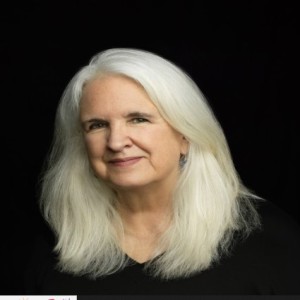
Tuesday Jul 05, 2022
Tuesday Jul 05, 2022
Episode 131 Notes and Links to Alice Elliott Dark’s Work
On Episode 131 of The Chills at Will Podcast, Pete welcomes Alice Elliott Dark, and the two discuss, among other topics, Alice’s upbringing and schooling that provided much room for intellectual growth and inquiry, her poetry writing days and gradual transfer to writing prose, her electrifying short story that made all-century lists, the story’s presentation on the big screen, and the “saga” of her latest novel and its accompanying themes.
Alice Elliott Dark, author of the novels Fellowship Point and Think of England, and whose story "In the Gloaming” was chosen by John Updike for inclusion in The Best American Short Stories of The Century and made into films by HBO and Trinity Playhouse. Her non-fiction reviews and essays have appeared in The New York Times, The Washington Post, and many anthologies. She is a recipient of a fellowship from the National Endowment for the Arts and an Associate Professor at Rutgers-Newark in the English department and the MFA program.
Publisher’s Weekly Review of Fellowship Point
Kirkus Reviews Review of Fellowship Point
At about 2:00, Alice details her childhood and adolescent relationship with language and reading
At about 4:40, Alice describes a formative experience where she realized that she, too, could become a professional writer
At about 5:20, Alice describes the books and writers who she loved as a kid, including A Stone for Danny Fisher and work by Irwin Shaw
At about 9:30, Alice responds to Pete’s questions about what it was like growing up in Philadelphia and its cultures and ethos, including the Quaker influences
At about 13:35, Alice talks about her early days of writing poetry and how she read widely, particularly poetry
At about 14:30, Alice discusses how her college Asian Studies major happily upset her ideas of form
At about 17:00, Alice responds to Pete’s question about any “ ‘Eureka’ moments” that convinced her of her writing prowess, as well as how watching a lot of 1970s UK punk helped her shift to writing prose
At about 19:40, Alice gives background on the origins of her legendary short story “In the Gloaming”
At about 22:15, Alice explains the meanings of the iconic first line of the short story
At about 24:00, Alice defines “gloaming” and Pete and Alice discuss the story’s beginning as Laird perks up around twilight
At about 25:20, Alice describes how she “step[s] aside” to let her characters develop and communication between mother and son
At about 28:40, Alice talks about her writing process and the importance of “picturing” the storyline, characters, etc.
At about 29:35, Pete and Alice discuss Martin, the father in the story, and his isolation, as well as intimacy between mother and son
At about 31:30, Pete and Alice talk about Laird’s illness in terms of an AIDS diagnosis
At about 33:15, Alice and Pete compare ideas of anonymity/Everyman/Everywoman in Alice’s writing and Chekhov’s
At about 34:25, Laird’s friend’s letter is referenced as juxtaposition with Laird’s deteriorating physical condition, and comparisons between Covid and AIDS are mentioned
At about 36:20, Pete reads and compliments the second-to-last sentence of the story
At about 37:40, Alice details the processes in which her story became a film and her experiences in watching the process unfold and witnessing the final product
At about 39:20, Alice discusses Christopher Reeve’s role in making the movie
At about 40:35, Pete wonders about Alice’s experience in having the story as part of
At about 41:50, Pete and Alice discuss the critical acclaim for Fellowship Point and the “saga” of the book’s long life before being finished and published
At about 45:45, Alice details themes and aims for the book, and how some subtleties of herself came through, though the book is truly fiction
At about 46:40, Alice replies to Pete’s questions about perspectives shifting as the book’s saga played out
At about 48:35, Alice responds to Pete’s question about if the characters are/were real to her
At about 50:45, Alice examines Covid’s impact on her and others’ writing
At about 52:25, Pete wonders how Alice saw and sees the finished product of Fellowship Point, and Alice highlights Mary Sue Rucci’s great help in editing and revising
At about 54:45, Pete and Alice discuss the characteristics of the book’s main characters
At about 58:10, The relationship between main character Agnes and an editor, Maud is discussed
At about 58:50, Ideas of land ownership and parallel themes are discussed in context of the book
At about 1:01:45, The theme of feminism is discussed, with regard to Agnes, and how the term is limiting for her
At about 1:03:50, Alice discusses what she has to say in the book about themes of aging (particularly with older women being ignored/underestimated) and
At about 1:05:50-friendship lasting and love as shown in different ways
At about 1:07:00-Alice gives her contact info, and highlights great work by Mary Sue Rucci Books, Scribner, and Cassandra Campbell for the reading of the audiobook
1:08:50-Alice provides her social media info
You can now subscribe to the podcast on Apple Podcasts, and leave me a five-star review. You can also ask for the podcast by name using Alexa, and find the pod on Stitcher, Spotify, and on Amazon Music. Follow me on IG, where I’m @chillsatwillpodcast, or on Twitter, where I’m @chillsatwillpo1. You can watch other episodes on YouTube-watch and subscribe to The Chills at Will Podcast Channel. Please subscribe to both my YouTube Channel and my podcast while you’re checking out this episode.
This is a passion project of mine, a DIY operation, and I’d love for your help in promoting what I’m convinced is a unique and spirited look at an often-ignored art form.
The intro song for The Chills at Will Podcast is “Wind Down” (Instrumental Version), and the other song played on this episode was “Hoops” (Instrumental)” by Matt Weidauer, and both songs are used through ArchesAudio.com.
Please tune in for Episode 132 with Morgan Talty, a citizen of the Penobscot Indian Nation where he grew up. Morgan teaches courses in both English and Native American Studies, and he is on the faculty at the Stonecoast MFA in creative writing. His highly-anticipated short story collection, Night of the Living Rez, is forthcoming from Tin House Books, on July 5.
The episode will air on July 11.
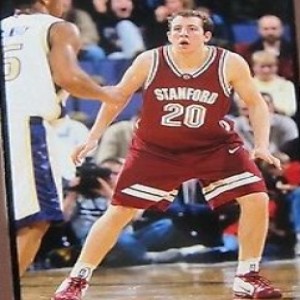
Saturday Jul 02, 2022
Episode 130 with Dan Grunfeld, Former College and Pro Basketball Standout
Saturday Jul 02, 2022
Saturday Jul 02, 2022
Episode 130 Notes and Links to Dan Grunfeld’s Work
On Episode 130 of The Chills at Will Podcast, Pete welcomes Dan Grunfeld, and the two discuss, among other topics, Dan’s connection to the NBA through his father, Dan’s pressures-internal and external-in playing basketball, his philosophy/mission in writing his book, his love and admiration for his heroic and inspirational grandmother, Dan’s family’s incredible, triumphant, and tragic stories involving the Holocaust, and basketball’s role in healing and publicizing the incredible saga of the Grunfeld family.
Dan Grunfeld is a former professional basketball player, an accomplished writer, and a proud graduate of Stanford University. An Academic All-American and All-Conference basketball selection at Stanford, Dan played professionally for eight seasons in top leagues around the world, including in Germany, Spain, and Israel. Dan’s writing has been published more than 40 times in media outlets such as Sports Illustrated, The Jerusalem Post, and NBC News. Dan earned his MBA from the Stanford Graduate School of Business in 2017 and lives with his wife and son in the San Francisco Bay Area, where he works in venture capital.
Dan and His Book Featured on TMJ4 News
At about 2:05, Dan details his relationship with languages and reading-a fellow Matt Christopher
At about 3:50, Dan connects storytelling’s importance and growing up as the child of immigrants
At about 5:00, Dan gives info on where to buy his book, his “true labor of love” and the process of writing and publishing and the appearances he has made since the book was published
At about 7:30, Dan highlights his grandmother
At about 7:55, Dan is highly complimentary of the legendary Ray Allen, who wrote the book’s Foreword
At about 10:50, Dan gives background on what it was like to be the son of a NBA general manager
At about 13:25, Dan gives background on how the book was thought up
At about 15:15, Dan details his writing process, specifically how his formal and informal interviews took place
At about 16:30, Dan talks about food as a “vessel of love” and its importance in his book and in his life
At about 17:40, Pete parallels Dan’s love of his grandmother’s cooking
At about 18:55, Dan emphasizes the fact that his father and family stressed Dan’s academic excellence over putting pressure on him to be a basketball star
At about 20:05, Dan explains the internal pressure to “make it as a basketball player” and how his family’s histories brought on pressure
At about 21:05, Pete and Dan discuss connections between Anyu’s idyllic childhood and events from the iconic Night by Elie Wiesel
At about 23:10, Pete details, to Dan’s point about the importance of telling individual stories to better understand the unfathomable histories, the power of LA’s Museum of Tolerance
At about 24:35, Dan talks about the symbolism and importance of a family heirloom, a silver spoon
At about 26:25, Dan talks about pressures put upon him and connections to a NBA decision maker
At about 27:40, Dan recounts details of “the greatest game [he] ever played”
At about 29:30, Dan talks about the intersections of Adolf Eichmann, Raoul Wallenberg and Dan’s grandmother, Anyu, in Budapest
At about 31:55, Pete and Dan talk about chapters detailing Dan’s improvements in college hoops and the importance of the 1936 Olympics and Jewish NBA players
At about 32:50, Dan highlights the sad story of his uncle
At about 33:35, Pete and Dan talk about Dan’s huge leap in his Stanford career and the connection between his improvement and workouts with the eccentric and iconic genius, Frank Matrisciano, “Hell’s Trainer”
At about 40:10, Pete asks Dan to describe the “highs and lows” involved with his huge success his junior year that was interrupted by a devastating ACL injury; Dan connects the injury to bigger themes in the book
At about 44:05, Dan recounts an amazing link between comedian/actor Buddy Hackett and the Grunfeld’s exit from Romania and their voyage to America
At about 47:30, Dan discusses the importance of a team mile run upon his return to Stanford’s team and his grueling rehab process
At about 50:45, Dan responds to Pete’s questions about his father’s loss of his brother Lutzi and interviews that brought out more of Ernie’s remembrances of his beloved brother; additionally, connections to Ernie’s motivations for basketball success and Anyu’s mourning process are explored
At about 53:50, Dan recounts the story of his grandparents and their realization that their son Ernie was a basketball phenom
At about 56:00, Dan tells about “asking for permission from [his] grandmother” to play in his first pro league, in Germany
At about 56:55, Dan discusses his experience trying out for the New York Knicks and talks about some legendary players whom he played against
At about 59:05, Dan and Pete discuss Ernie’s 1976 Olympics appearance, his NBA career, and his connections with Bernard King- “Ernie and Bernie”
At about 1:01:50, Dan discusses the end of his own playing career and changing perspective
At about 1:03:20, Dan talks about his current basketball-playing philosophy and performance
At about 1:05:10, Pete and Dan discuss the ending of the book and ideas of legacy and love, as Dan reflects on the fact that stories like those of his families “need” to be passed on to future generations
At about 1:09:35, Dan gives his contact information and encourages people to connect with him
You can now subscribe to the podcast on Apple Podcasts, and leave me a five-star review. You can also ask for the podcast by name using Alexa, and find the pod on Stitcher, Spotify, and on Amazon Music. Follow me on IG, where I’m @chillsatwillpodcast, or on Twitter, where I’m @chillsatwillpo1. You can watch other episodes on YouTube-watch and subscribe to The Chills at Will Podcast Channel. Please subscribe to both my YouTube Channel and my podcast while you’re checking out this episode.
This is a passion project of mine, a DIY operation, and I’d love for your help in promoting what I’m convinced is a unique and spirited look at an often-ignored art form.
The intro song for The Chills at Will Podcast is “Wind Down” (Instrumental Version), and the other song played on this episode was “Hoops” (Instrumental)” by Matt Weidauer, and both songs are used through ArchesAudio.com.
Please tune in for Episode 131 with Alice Elliott Dark, author of the novels Fellowship Point and Think of England, and whose story "In the Gloaming” was chosen by John Updike for inclusion in The Best American Short Stories of The Century and made into films by HBO and Trinity Playhouse
The episode will air on July 5.
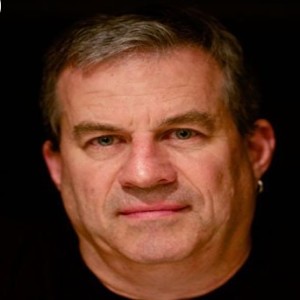
Wednesday Jun 29, 2022
Wednesday Jun 29, 2022
Episode 129 Notes and Links to Sam Quinones’ Work
On Episode 129 of The Chills at Will Podcast, Pete welcomes Sam Quinones, and the two discuss, among other topics, growing up in a house that exalted reading, Sam’s freelance writing training, his time living and writing in México, his love of storytelling in its myriad forms, and his insights gleaned from his reporting for his amazing recent books on the opiate and meth and fentanyl epidemics.
Sam Quinones is a journalist, storyteller, former LA Times reporter, and author of three acclaimed books of narrative nonfiction, including The Least of Us: True Tales of America and Hope in the Time of Fentanyl and Meth, released in 2021, and his 2015 release, Dreamland: The True Tale of America's Opiate Epidemic.
Sam on C-SPAN BookTV’s In Depth
REVIEWS: The Least of Us in Christianity Today & Plough Quarterly
At about 1:30, Sam discusses his upbringing as the son of two teachers, and how his parents fostered his love of reading
At about 4:20, Pete and Sam discuss The Godfather and its themes, in connection to Sam’s father having taught Shakespeare by making parallels between these seemingly-disparate works, as well as parallels between Appalachia and Sicily and México
At about 9:15, Sam explains migration patterns from small Appalachian towns
At about 10:00, Sam talks about his high school years and early adulthood and how they were without formal journalism training but rich on experience and story ideas
At about 12:30, Sam recounts the tale of his first formal interview and its transformative power on him
At about 13:40, Sam gives background on his time covering the punk rock scene and how freelance writing connects to the punk rock ethos
At about 15:30, Sam discusses his time covering crime in Stockton, CA
At about 17:00, Sam talks about is ten-year stint in Mexico
At about 18:00, Sam references writers who have inspired him, including Calvin Trillin, Edna Buchanan, and Alma Guillermoprieto, and Elaine Shannon
At about 22:10, Sam and Pete talk about the community of writers, with people like Gustavo Arellano who aspire to, and concentrate on, “human stories”
At about 31:40, Pete highlights the greatness of True Tales from Another México and its diverse and interesting stories
At about 33:00, Sam gives background on the beginnings of the Mexican Drug War
At about 36:00, Sam talks about the “scariest moment of [his] life” in researching and dealing with the Mennonite drug traffickers of Mexico
At about 37:40, Sam traces the story of Chalino Sánchez that is featured in True Tales from Another México
At about 41:00, Sam draws parallels between the “punk rock” and “DIY” ethos that brought together music movements of the 70s/80s/90s
At about 42:40, Pete and Sam recount the themes and details of a few pieces from the collection
At about 43:45, Sam expounds upon the incredible lasting power of the PRI and its connections to his writing
At about 45:45, Pete discusses some “rabbit holes” that Sam’s writing has led him down, and Sam expounds upon the story of the lynching in Hidalgo
At about 48:50, Sam connects the theme of “impunity” to Mexican immigrant stories, especially the impunity of political figures
At about 50:40, Pete talks about the theme of rural living and immigration/migration
At about 52:35, Sam uses “La Jaula de Oro” by Los Tigres del Norte as an example of a mindset regarding immigration flows from Mexico
At about 53:40, Pete gives his personal connection to some of the stories regarding Michoacán
At about 54:10, Tocumbo and La Michoacana are mentioned as a happy story of innovation, and Sam mentions a cool future book idea
At about 55:30, Sam talks about the seeds/genesis for Dreamland
At about 59:40, Sam talks about free market and its connection to the opioid epidemic, and how Dreamland became a book about “deeper roots of community that we have destroyed”
At about 1:01:00, Sam gives background on the book’s title and talks about the hidden opiate epidemic in past years
At about 1:03:15, Sam details an incredibly influential letter and incomplete science that provided fodder for Purdue Pharma and its quest to ramp up pill production and promotion
At about 1:09:15, Sam responds to Pete’s question about his experiences with the feedback, community changes, and speaking appearances that came with the publication of Dreamland
At about 1:10:10, Sam highlights the high incidences of communities rising up and building grassroots support for change with the opiate epidemic
At about 1:15:00, Pete starts at the end of The Least of Us with Portsmouth’s recovery and asks Sam why he ends the book that way
At about 1:18:55, Pete and Sam highlight ideas of isolation and alienation that dovetails with drugs and other solitary addictions
At about 1:21:15, Pete recaps Sam’s thesis as laid out on Page Nine of the book and compliments Sam’s craft in writing about neuroscience, history, etc., in the book
At about 1:22:25, Sam talks about the brain chemistry and “reward pathways” that have exacerbated addiction
At about 1:25:10, Sam gives background on the ways in which fentanyl can be successful, talking about his own heart surgery
At about 1:27:55, Sam provides details on the specific links between the rise in P2P meth and the growing homelessness crisis in the country
At about 1:33:10, Pete emphasizes the strength of Starla and Bella and Angie Odom and Rob Burd and Mike McKissick and some amazing personal stories from the book
At about 1:38:05, Sam replies to Pete’s question about whether or not he is hopeful after the past epidemics
At about 1:41:25, Sam gives contact info and book purchasing info
At about 1:42:25, Sam discusses exciting future projects
You can now subscribe to the podcast on Apple Podcasts, and leave me a five-star review. You can also ask for the podcast by name using Alexa, and find the pod on Stitcher, Spotify, and on Amazon Music. Follow me on IG, where I’m @chillsatwillpodcast, or on Twitter, where I’m @chillsatwillpo1. You can watch other episodes on YouTube-watch and subscribe to The Chills at Will Podcast Channel. Please subscribe to both my YouTube Channel and my podcast while you’re checking out this episode.
This is a passion project of mine, a DIY operation, and I’d love for your help in promoting what I’m convinced is a unique and spirited look at an often-ignored art form.
The intro song for The Chills at Will Podcast is “Wind Down” (Instrumental Version), and the other song played on this episode was “Hoops” (Instrumental)” by Matt Weidauer, and both songs are used through ArchesAudio.com.
Please tune in for Episode 130 with Dan Grunfeld, a former professional basketball player, an accomplished writer, and a proud graduate of Stanford University. An Academic All-American and All-Conference basketball selection at Stanford, Dan played professionally for eight seasons in top leagues around the world, including in Germany, Spain, and Israel. Dan’s writing has been published more than 40 times in media outlets such as Sports Illustrated, The Jerusalem Post, and NBC News, and we will talk about and the amazing family stories behind his recent publication, By The Grace of the Game: The Holocaust, A Basketball Legacy, and an Unprecedented American Dream.
The episode will air on July 2.

Tuesday Jun 21, 2022
Tuesday Jun 21, 2022
Episode 128 Notes and Links to Vania Patino’s Work
On Episode 128 of The Chills at Will Podcast, Pete welcomes Vania Patino, and the two discuss, among other topics, her early love of reading in Spanish and English, Twilight, a formative experience for Vania as a high school reporter, her busy and educational college years, the power of Chicano Studies and Ethnic Studies classes, and ideas of objectivity and balance in journalism.
Vania Patino is a news reporter for KERO-TV in Bakersfield, CA, a former reporter for KFDA in Amarillo, Texas, and a former standout student in Pete’s English 10 honors class.
For Latino Reporter: “After El Paso shooting, Texans seem divided over looser gun laws”
Video from Cal State Fullerton's Al Dia Newsmagazine
Video and Article by Vania: "In Tex-Mex country, ‘el sabor’ helps Boricua culture thrive"
At about 1:40, Vania gives background on her relationship with language, learning English as a second language, and her early love of reading, including her love of a particular teen series
At about 5:00, Pete and Vania discuss the phenomenon that was the Twilight series
At about 7:00, Vania describes how Spanish specifically calls to her, interests her, etc., as well as how she re-embraced the beauty of speaking Spanish
At about 10:00, Vania wows with an amazing story from her third day on the job in Amarillo that highlights
At about 12:50, Vania highlights important lessons learned in college ethnic studies and Chicano history courses
At about 14:40, Vania discusses interesting conversations around identity that came up during her enjoyable college years
At about 16:25, Vania responds to Pete’s questions
At about 18:20-27:30, Vania recounts an incredibly impactful experience in covering a 2015 Donald Trump speech in San Pedro
At about 27:35, Vania talks about her time in Amarillo, Texas, including covering a different political arena than she was used to
At about 29:50, Vania talks about formative experiences from her busy college days, and shouts out mentor Inez Gonzalez
At about 32:00, Vania recounts a funny anecdote about interning with NBC News with Lester Holt
At about 37:00, Vania gives the story of the horrific tragedy in Thousand Oaks, sadly the first of many mass shootings that she has covered
At about 42:30, Vania tells a story that is emblematic of being innovative and dogged in pursuing a local angle to a national story
At about 46:15, Vania explains the writing and background work for a news “package”
At about 50:55, Vania responds to Pete wondering about how she balances formal and informal presentations of the news
At about 53:30, Vania discusses ideas of objectivity in reporting, particularly post-Trump as POTUS
At about 57:30, Vania answers Pete’s question about which tv shows/movies “get it right” with regard to a realistic view of the newsroom
At about 59:40, Vania responds to Pete’s question about the responsibilities that come with doing translation in news
At about 1:04:30, Vania discusses future projects
At about 1:08:40, Vania gives contact information/social media info
You can now subscribe to the podcast on Apple Podcasts, and leave me a five-star review. You can also ask for the podcast by name using Alexa, and find the pod on Stitcher, Spotify, and on Amazon Music. Follow me on IG, where I’m @chillsatwillpodcast, or on Twitter, where I’m @chillsatwillpo1. You can watch other episodes on YouTube-watch and subscribe to The Chills at Will Podcast Channel. Please subscribe to both my YouTube Channel and my podcast while you’re checking out this episode.
This is a passion project of mine, a DIY operation, and I’d love for your help in promoting what I’m convinced is a unique and spirited look at an often-ignored art form.
The intro song for The Chills at Will Podcast is “Wind Down” (Instrumental Version), and the other song played on this episode was “Hoops” (Instrumental)” by Matt Weidauer, and both songs are used through ArchesAudio.com.
Please tune in for Episode 129 with Sam Quinones, a journalist, storyteller, former LA Times reporter, and author of three acclaimed books of narrative nonfiction, including The Least of Us: True Tales of America and Hope in the Time of Fentanyl and Meth, released in 2021, and his 2015 release, Dreamland: The True Tale of America's Opiate Epidemic.
The episode will air on June 28.

Tuesday Jun 14, 2022
Tuesday Jun 14, 2022
Episode 127 Notes and Links to Raina Kelley’s Work
On Episode 127 of The Chills at Will Podcast, Pete welcomes Raina Kelley, and the two discuss, among other topics, their shared love of the Oxford Comma, Raina’s single mindedness in reading widely, her circuitous route from studying theater to journalism, cultural criticism, and editorship, the intricacies of keeping a multimedia presence, Andscape’s mission and goals and structure, and political activism in sport.
Raina Kelley is Vice President and Editor-in-Chief of Andscape, formerly The Undefeated, a Black media platform dedicated to creating, highlighting, and uplifting the diverse stories of Black identity. She is also a former deputy editor at ESPN The Magazine.
ESPN Press Room Bio for Raina Kelley
Raina on ESPN PRod Pod in March 2022
February 2022 Article from New York Times: “ESPN Rebrands Black-Focused Undefeated Site as Andscape”
At about 1:25, Raina talks about her “superpower” of always reading
At about 3:40, Raina discusses One Flew Over the Cuckoo’s Nest as an indicator of grade-level reading
At about 5:00, Raina discusses favorite books
At about 6:45, Pete and Raina investigate Castaway and its a passive/proactive protagonist
At about 7:45, Raina responds to Pete’s questions about Raina’s writing and reading journey, and Raina gives background on her formidable drama base
At about 10:20, Pete and Raina geek out over Anna Deavere Smith’s “magnificent” Twilight: Los Angeles
At about 12:30, Raina keeps it cool about her alma mater Yale’s Skull and Bones, and how her career path took shape after college
At about 15:20, Raina talks about her “long and winding road” to journalism, and how “storytelling” was always her highest priority
At about 16:10, Pete asks Raina to compare and contrast theater writing and journalism
At about 17:50, Raina and Pete reminisce and lament over 2008-2022 in talking about the drastically-different worlds of Obama and Trump
At about 20:20, Raina talks about ideas of “authenticity” and inclusion in contemporary society
At about 21:00, Pete uses James Patterson’s recent comments as a springboard to ask Raina questions about her experiences as a Black woman in worlds often heavy on white men’s influence
At about 25:50, Raina explains her role at ESPN: The Magazine, including a detailed explanation of what a “deputy editor” does
At about 28:00, Raina responds to Pete’s questions about an editor’s balancing act in respecting a writer’s autonomy and voice while performing one’s editing duties
At about 31:00, Pete wonders about Raina’s sports fandom/interest
At about 33:05, Raina shouts out the Best American anthology and its collections of great sportswriting
At about 35:00, Raina is asked about reasons for the rise or perception of the rise of players as activists
At about 37:50, Raina talks about multimedia’s rise in line with the decline of physical newspapers and magazines
At about 41:25, Raina talks about what drew her to The Undefeated
At about 43:30, Raina discusses the audiences for The Undefeated and Andscape and “fine-tuning” voice and inclusion
At about 44:40, Raina talks about a dream collaboration with Hamilton and The Undefeated, under the care of Kelley L. Carter
At about 45:40, Raina further discusses Andscape’s name origin and its changing role in 2022
At about 47:50, Pete and Raina talk about the idea of the diversity within and among Black points-of-view
At about 49:10, Pete highlights three representative articles from the week’s Andscape that show a diversity of thought and subject matter
At about 50:00, Raina discusses future projects for Andscape, including Jason Reid’s book, The Rise of the Black Quarterback, being published through the company’s imprint
At about 51:30, Pete’s son and his jaguar toy make an appearance!
At about 52:20, Raina gives contact/social media info
You can now subscribe to the podcast on Apple Podcasts, and leave me a five-star review. You can also ask for the podcast by name using Alexa, and find the pod on Stitcher, Spotify, and on Amazon Music. Follow me on IG, where I’m @chillsatwillpodcast, or on Twitter, where I’m @chillsatwillpo1. You can watch other episodes on YouTube-watch and subscribe to The Chills at Will Podcast Channel. Please subscribe to both my YouTube Channel and my podcast while you’re checking out this episode.
This is a passion project of mine, a DIY operation, and I’d love for your help in promoting what I’m convinced is a unique and spirited look at an often-ignored art form.
The intro song for The Chills at Will Podcast is “Wind Down” (Instrumental Version), and the other song played on this episode was “Hoops” (Instrumental)” by Matt Weidauer, and both songs are used through ArchesAudio.com.
Please tune in for Episode 128 with Vania Patino. Vania is a news reporter for KERO-TV in Bakersfield, CA, a former reporter for KFDA in Amarillo, Texas, and a former standout student in Pete’s English 10 honors class. This is going to be quite a treat for Pete!
The episode will air on June 21.

Tuesday Jun 07, 2022
Tuesday Jun 07, 2022
Episode 126 Notes and Links to Kevin Owens’ Work
Kevin Owens is a veteran of overseas professional basketball and a current teacher and basketball coach. He is an entrepreneur and founder of Overseas Famous LLC, a multimedia platform created to give athletes playing abroad a voice. These stories provide a behind-the-scenes look at what goes on with overseas sports. His 2021 book is called Overseas Famous. While he had the name first, he is now the second most popular Kevin Owens in the world.
Buy Overseas Famous: The Travels and Tribulations of a Basketball Globetrotter
“BEHIND THE SCENES OF OVERSEAS PRO BASKETBALL WITH KEVIN OWENS” in Joker Mag-Written by Tyler O’Shea
Thank you for listening to Episode 126 with Kevin Owens. You can now subscribe to the podcast on Apple Podcasts, and leave me a five-star review. You can also ask for the podcast by name using Alexa, and find the pod on Stitcher, Spotify, and on Amazon Music. Follow me on IG, where I’m @chillsatwillpodcast, or on Twitter, where I’m @chillsatwillpo1. You can watch this and other episodes on YouTube-watch and subscribe to The Chills at Will Podcast Channel. Please subscribe to both my YouTube Channel and my podcast while you’re checking out this episode.
This is a passion project of mine, a DIY operation, and I’d love for your help in promoting what I’m convinced is a unique and spirited look at an often-ignored art form.
The intro song for The Chills at Will Podcast is “Wind Down” (Instrumental Version), and the other song played on this episode was “Hoops” (Instrumental)” by Matt Weidauer, and both songs are used through ArchesAudio.com.
Please tune in for Episode 127 with Raina Kelley, Vice President and Editor-in-Chief of Andscape, formerly The Undefeated, a Black media platform dedicated to creating, highlighting, and uplifting the diverse stories of Black identity. She is also a former deputy editor at ESPN The Magazine.
The episode will air on June 14.
For now, thanks again for listening, and I hope that these quarantine days bring you texts by writers with MAD Skills, like Kevin Owens, whose works, like Overseas Famous, gives you laughs, and chills at will.
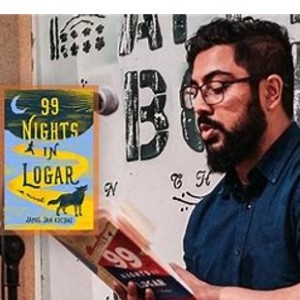
Tuesday May 31, 2022
Tuesday May 31, 2022
Episode 125 Notes and Links to Jamil Jan Kochai’s Work
On Episode 125 of The Chills at Will Podcast, Pete welcomes Jamil Jan Kochai, and the two discuss, among other topics, his early relationship with languages and reading, an early fascination with Harry Potter, his family’s proud histories and storytelling legacies, Jamil’s hoop skills, his book 99 Nights and Logar and its allegory and realism, its connections to contemporary Afghan history, as well as his recent “love letter to his father” in The New Yorker.
Jamil Jan Kochai is the author of 99 Nights in Logar (Viking, 2019), a finalist for the Pen/Hemingway Award for Debut Novel and the DSC Prize for South Asian Literature. He was born in an Afghan refugee camp in Peshawar, Pakistan, but he originally hails from Logar, Afghanistan. His short stories and essays have appeared in The New Yorker, The New York Times, Los Angeles Times, Ploughshares, and The O. Henry Prize Stories 2018. Currently, he is a Stegner Fellow at Stanford University.
Preorder The Haunting of Hajji Hotak and Other Stories
“Jamil Jan Kochai on Résumés as Stories” from The New Yorker, May 2022
“Occupational Hazards”-Short Story-from May 2022, The New Yorker
At about 1:40, Jamil and Pete discuss NBA loyalties as fellow Sacramentans
At about 2:30, Pete shouts out some unique description from Jamil’s 99 Nights in Logar
At about 4:05, Jamil gives background on his family roots in Logar, Afghanistan and Peshawar, Pakistán, as well as how amorphous borders have affected loyalties and pride
At about 7:00, Jamil describes his childhood moves and family circumstances that led to his family laying down roots in California, as well as his relationship with language
At about 9:15, Alice Norman Elementary and Mrs. Long are shouted out as huge parts of Jamil learning and loving the English language
At about 10:20, Jamil responds to Pete’s questions about the roles of lore, stories, and storytellers in his life
At about 12:30, Jamil lists books and writers that captivated and inspired him from an early age, as well as ideas of escape and fantasy-entering a “new world”
At about 16:25, Pete wonders about “generations” of Afghan immigrants, Khaled Hosseini’s impact on a younger Jamil, and Jamil’s current view of The Kite Runner
At about 19:30, Jamil compares The Kite Runner to a seminal book in his life, One Hundred Years of Solitude
At about 21:20, Jamil discusses ideas of pressure that may come with being seen as a representative of Afghan/Afghan-American cultures
At about 24:00, Pete asks Jamil about “the white gaze” and feedback and thought process that went along with not translating many words from the book
At about 29:35, Pete and Jamil fanboy about Gabriel Garcia Marquez and Jamil details One Hundred Years of Solitude importance to him, in addition to listing 1984 and Native Son and other formative texts
At about 31:40, Jamil does an almost perfect job in recounting the iconic opening line of One Hundred Years of Solitude
At about 34:10-35:50, Pete and Jamil sing the praises of Jess Walter, as both a writer and baller
At about 35:50, Jamil diagnoses his own basketball game in a detailed scouting report
At about 36:50, Pete asks a followup question regarding Jamil’s growth and awareness as a writer and “ ‘Eureka’ moments,” including early work done in high school English classes
At about 41:40, Jamil shouts out some standout Italo Calvino work
At about 43:10, Pete speaks of pitch for a future article
At about 43:40, Pete fanboys over “The Gospel According to Mark” by Borges
At about 45:25, Jamil responds to Pete’s questions about the two epigraphs for 99 Nights in Logar
At about 50:00, Jamil focuses on the Kipling epigraph in describing his objectives and challenges in writing 99 Nights in Logar
At about 51:40, Jamil traces the evolution of Budabash as a character and symbol in
At about 54:00, Jamil responds to Pete’s questions about Marwand as a musafir and the book as charting an ephemeral journey
At about 56:00, Jamil explains his mindset about giving Marwand “agency,” including how his writing training prepared him for writing about agency
At about 59:40, Pete summarizes the moving story of Marwand’s uncle
At about 1:00:50, Jamil provides background on the genesis and role of “The Thief,” an intriguing character from the book
At about 1:06:00, Jamil and Pete discuss the history of Afghanistan that is incorporated into the novel, including how Jamil finessed this history in a way that “benefited the story itself”
At about 1:09:05, Jamil describes the significance and real-world links to a scene from the book involving an uncovering of bones
At about 1:10:40, Pete and Jamil ruminate on praise for his writing from Jesmyn Ward
At about 1:11:10, Pete and Jamil discuss Jamil’s recent publication from The New Yorker, “Occupational Hazards”
At about 1:14:50, Jamil highlights his upcoming collection of short stories and highlights local bookstores as great places to buy his books-Bookshop.org and The Indie Book Store, among others
You can now subscribe to the podcast on Apple Podcasts, and leave me a five-star review. You can also ask for the podcast by name using Alexa, and find the pod on Stitcher, Spotify, and on Amazon Music. Follow me on IG, where I’m @chillsatwillpodcast, or on Twitter, where I’m @chillsatwillpo1. You can watch other episodes on YouTube-watch and subscribe to The Chills at Will Podcast Channel. Please subscribe to both my YouTube Channel and my podcast while you’re checking out this episode.
This is a passion project of mine, a DIY operation, and I’d love for your help in promoting what I’m convinced is a unique and spirited look at an often-ignored art form.
The intro song for The Chills at Will Podcast is “Wind Down” (Instrumental Version), and the other song played on this episode was “Hoops” (Instrumental)” by Matt Weidauer, and both songs are used through ArchesAudio.com.
Please tune in for Episode 126 with Kevin Owens, a veteran of overseas professional basketball and a current teacher and basketball coach. He is an entrepreneur and founder of Overseas Famous LLC, a multimedia platform created to give athletes playing abroad a voice. These stories provide a behind-the-scenes look at what goes on with overseas sports. His 2021 book is called Overseas Famous. While he had the name first, he is now the second most popular Kevin Owens in the world.
The episode will air on June 7.
